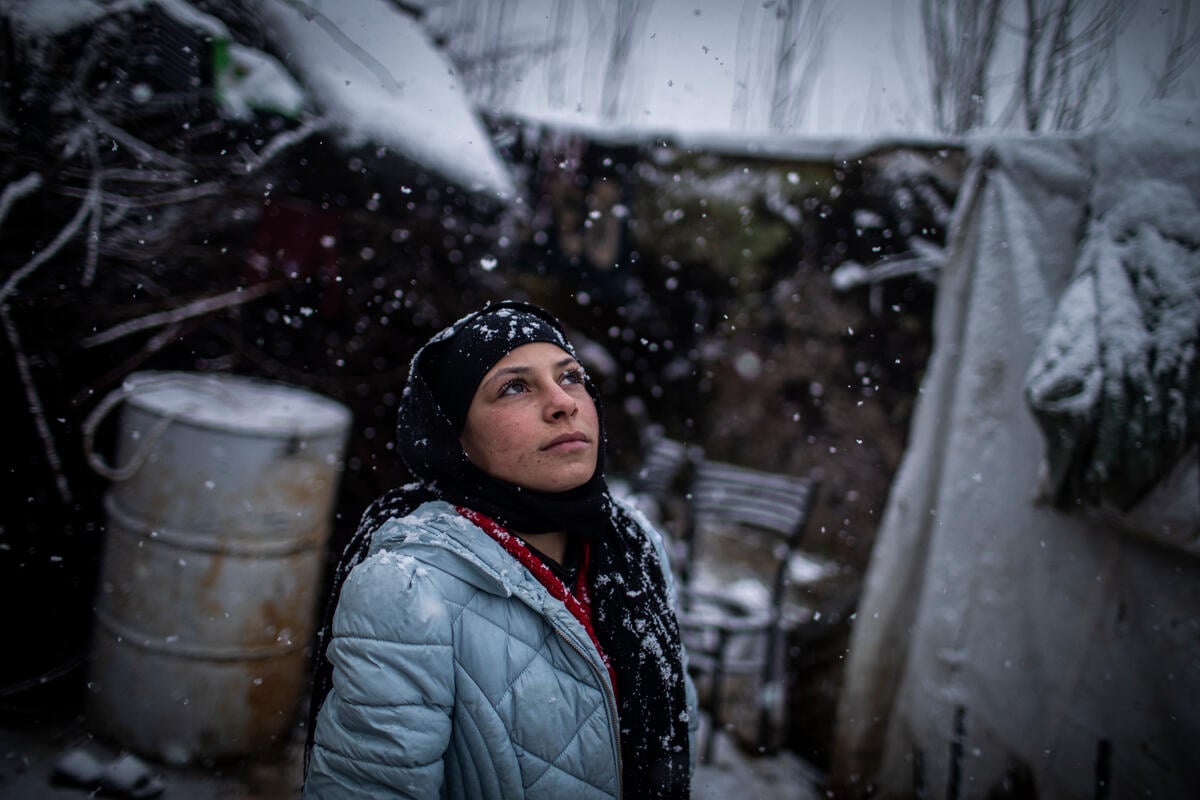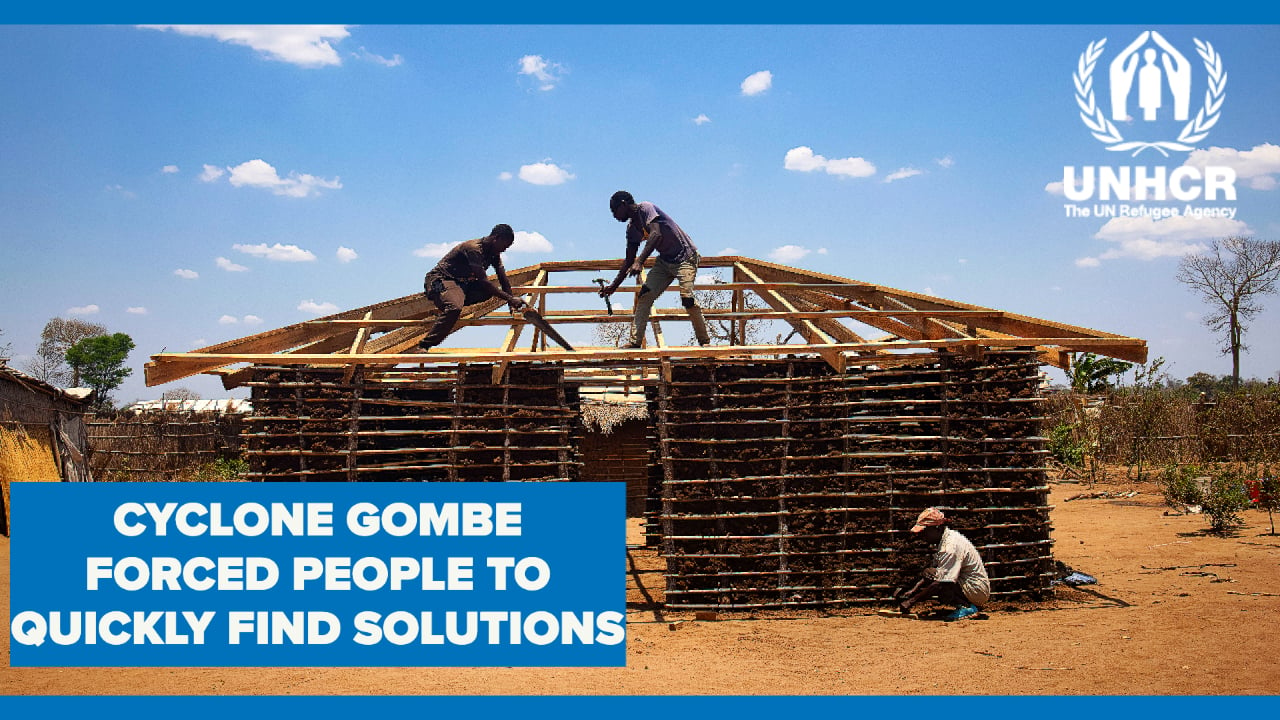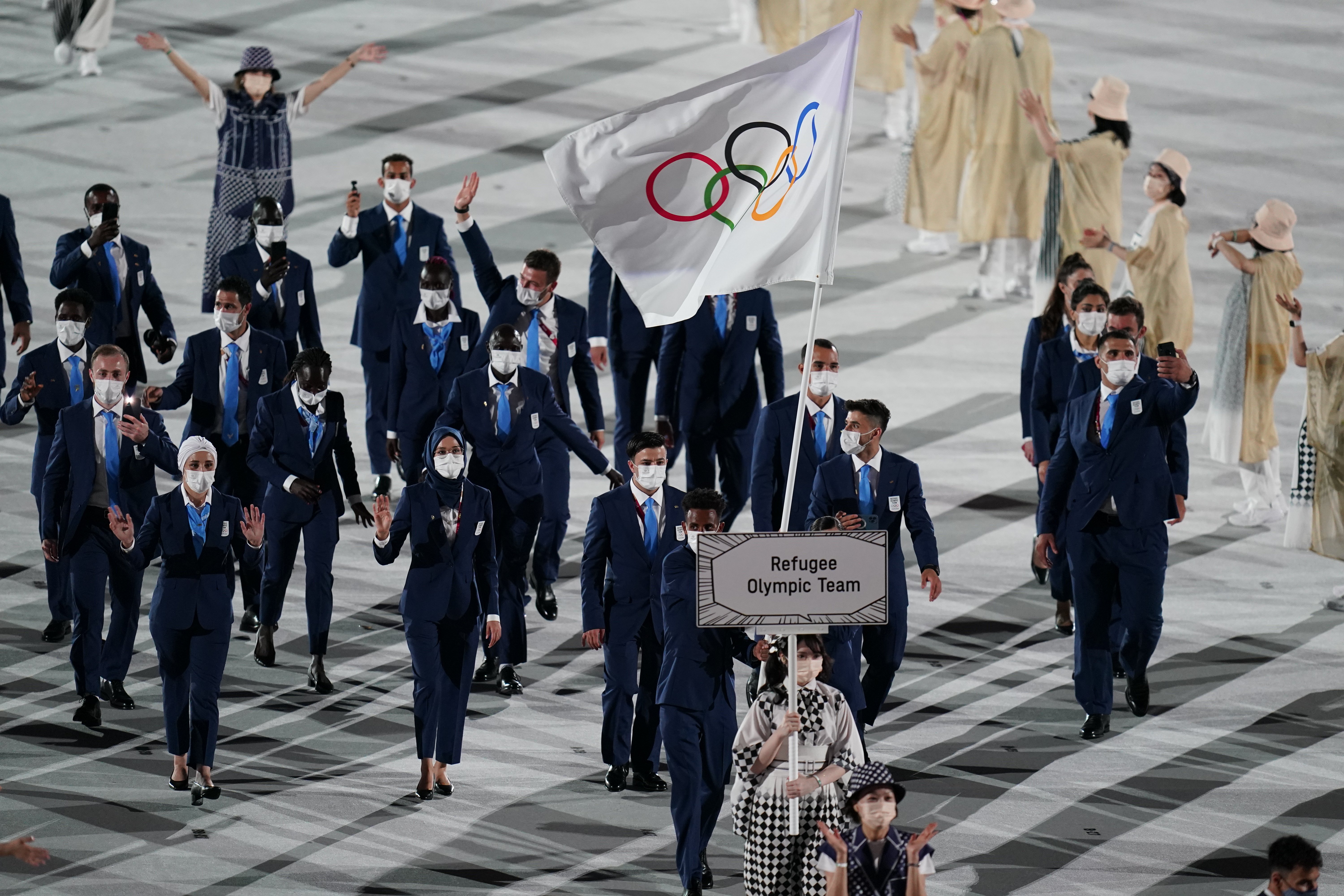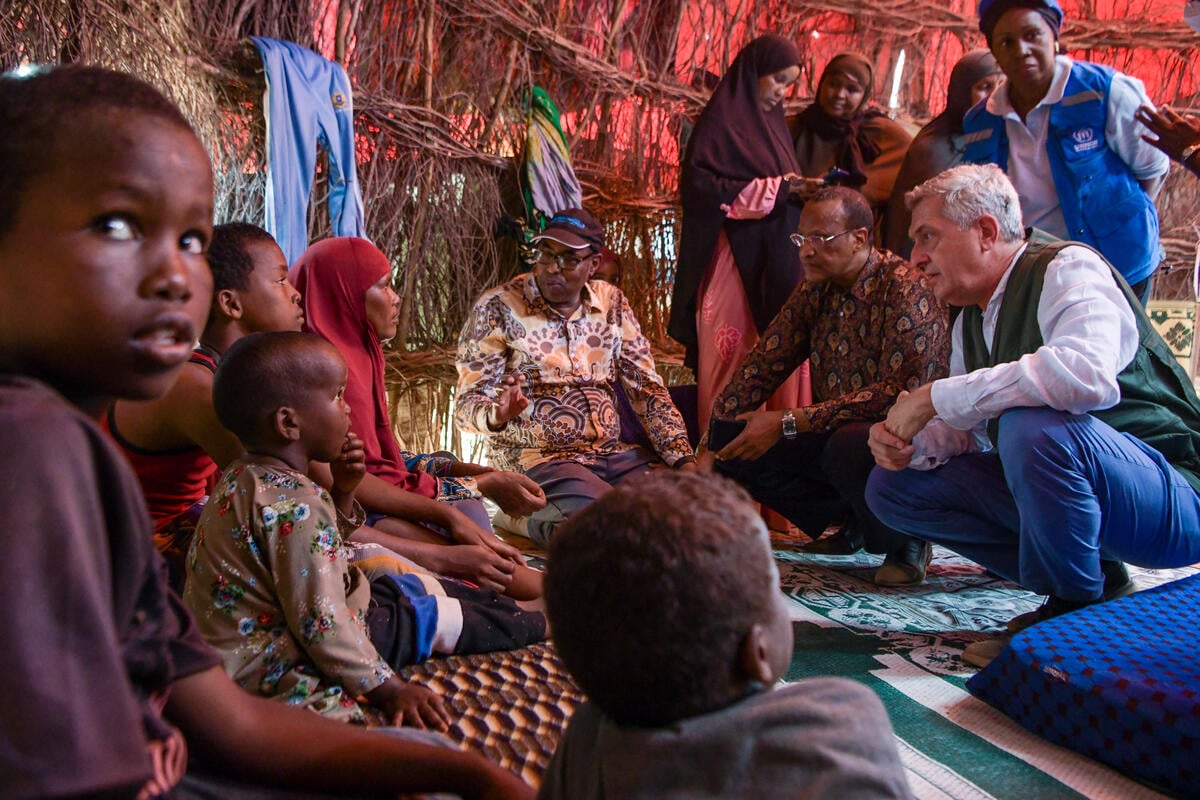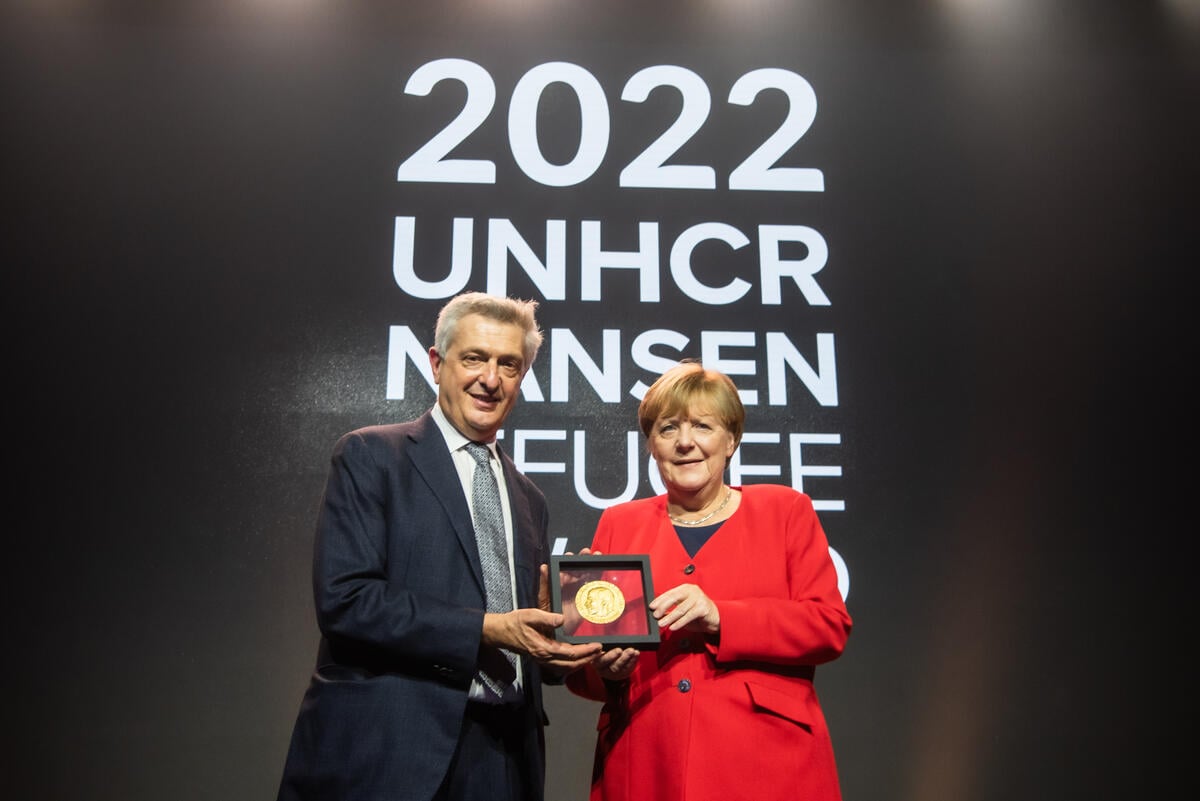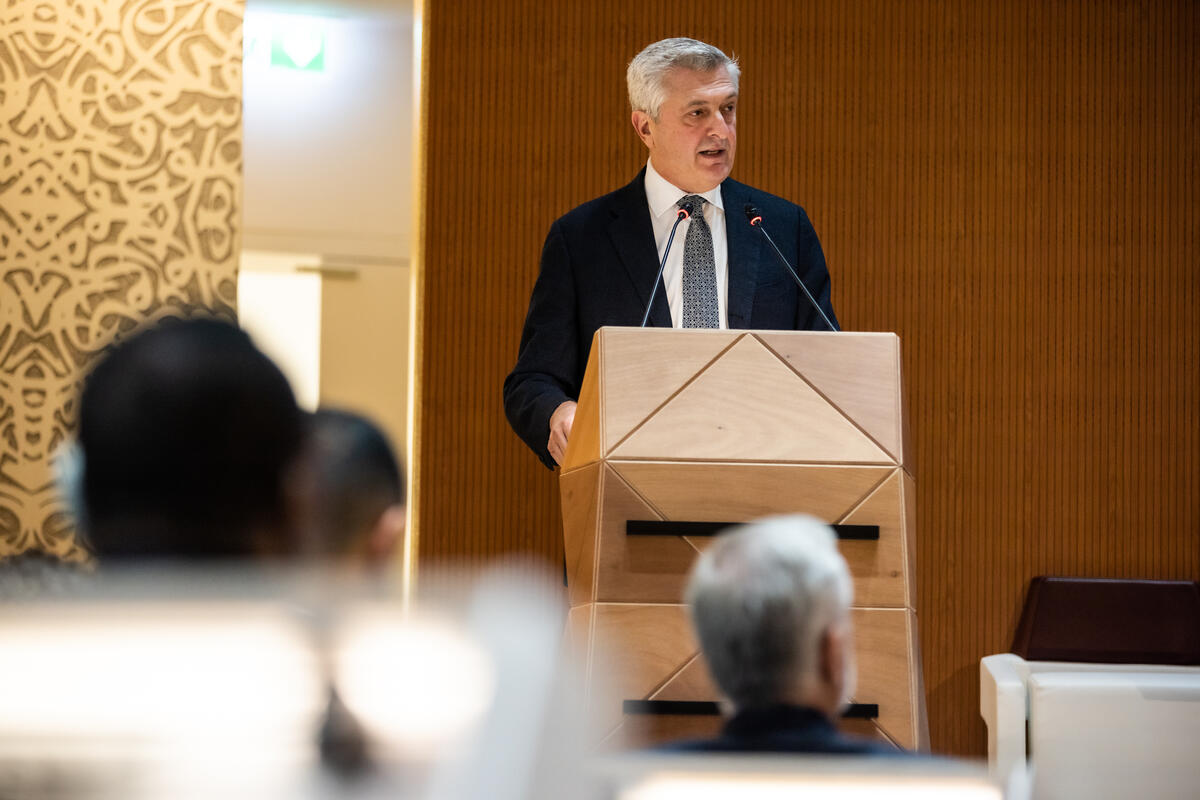Help needed to meet 'urgent humanitarian needs' in Syria, Grandi says
UN High Commissioner for Refugees Filippo Grandi has concluded a three-day visit to the Syrian Arab Republic with an appeal for increased international assistance to relieve the plight of families still struggling to secure food, medicine and other basic provisions years after the end of fighting in some areas.
More than nine years into a crisis that has driven 5.5 million refugees to flee to neighbouring countries, a further 6.1 million people remain displaced from their homes inside Syria and a total of 11 million are in need of humanitarian assistance. A crippling economic crisis and the spread of COVID-19 have compounded the suffering for many.
During a visit to the town of Zamalka in Eastern Ghouta on the outskirts of the capital Damascus, which suffered extensive damage during six years of conflict, Grandi met with families who are still struggling to repair their homes, find jobs and secure food and medicine two-and-a-half years after the end of the fighting.
"These are tough conditions."
Two years after his last visit to the area, the High Commissioner said there were increasing signs of stability but much work remained to be done.
“You can see some life starting again but these are tough conditions, these people have real, true, urgent humanitarian needs,” Grandi said. “Water is a problem, electricity is very scarce … if they have to buy medicine, they told me it’s very expensive and so is food, especially in the difficult economic situation of the country.”
“This is of course also made more serious from the humanitarian point of view by the presence of the coronavirus. It is very difficult in a place like this,” Grandi added. “It’s very difficult to keep distances, it’s difficult to wash hands, it’s difficult to protect people from the virus, so this is an additional challenge for the people in this area.”
Compared with a pre-crisis population of 180,000, only 4,000 inhabitants remained in Zamalka by the end of the fighting in March 2018. Since then a further 7,000 displaced people and refugees have come back, with 25,000 more predicted to return. But widespread damage to the town’s infrastructure has made it hard for people living there to access basic services.
See also: Grandi concludes Syria visit with pledge to maintain assistance to the most vulnerable
During his visit Grandi spoke to 65-year-old Rida, who fled the town with his family in 2012 and remained displaced for nearly seven years before returning last year. He explained that while the security situation has improved, his family is still suffering because of the economic hardships they currently face.
Rida told the High Commissioner that with no source of income, he and his wife relied on support from relatives and neighbours to feed themselves. The food aid they were receiving from NGOs has dried up, and they have no access to electricity and rely on well water for washing and cleaning.
As in other parts of the country, UNHCR, the UN Refugee Agency, is doing what it can to help families that have chosen to return to their homes. It has funded the rehabilitation of partially damaged houses belonging to 51 of the most vulnerable families, and repaired sewage and rainwater systems serving thousands of people.
But with UNHCR’s Syria operation funding requirements for 2020 only around 25 per cent financed, the High Commissioner urged donors to step up their efforts to help those struggling to rebuild their lives.
"The resources are very little and more is needed."
“I really want to make an appeal,” Grandi said. “The situation in Syria is very complex but I think we should not forget that there are people who are in the country, there are people coming back to the country, or displaced within the country that are returning home that have very urgent humanitarian requirements – food, medicine, shelter, education.”
“UNHCR and other organizations are working and trying to help the most vulnerable, but the resources are very little and more is needed to really relieve the plight of the people in this situation.”
Grandi was speaking during a four-day visit to Syria and Jordan from 14-17 September.




